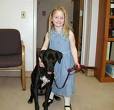![]()
Search
Recent Posts
- ChangingAging.org Redesign -- Please Bookmark!
- Disaster in Buffalo
- Power Up Friday
- Blanchard WinsDays
- Kevin Frick writes...
- Monkhouse Monday
- Getting Closer!
- Blanchard WinsDays
- Power Up Friday
- My Pick for Health and Human Services
- Understanding Health Care Reform
- Facts Are Stubborn Things: Social Security Edition
- Monkhouse Monday
- Localism is Coming
- Krugman Can't Wait...
Recent Comments
- Judith Shapiro on
The Healing Power of Dogs - JazzRespect&Heart on
The Healing Power of Dogs
Category Archives
- AGING 100
- Aging
- Culture
- Dementia
- Eden Alternative
- Erickson School
- Green House
- Health Policy
- Longevity
- Media
- Rockets
Monthly Archives
- February 2009
- January 2009
- December 2008
- November 2008
- October 2008
- September 2008
- August 2008
- July 2008
- June 2008
- May 2008
- April 2008
- March 2008
- February 2008
- January 2008
- December 2007
- November 2007
- October 2007
- September 2007
- August 2007
 Subscribe to this blog's feed
Subscribe to this blog's feed
Announcements

Blog Data
« Comment of the Week | Main | The Jerusalem Post Gets It »
January 22, 2008 |Permalink |Comments (2)
The Healing Power of Dogs
The Eden Alternative has known this (and so have many other people) for a long, long time. Still, it is nice to see scientific proof!
Dogs have long had special standing in the medical world. Trained to see for the blind, hear for the deaf and move for the immobilized, dogs have become indispensable companions for people with disabilities.But dogs appear to be far more than four-legged health care workers. Over the years, data on the larger role dogs play in health has trickled out from various corners of the world. One Japanese study found pet owners made 30 percent fewer visits to doctors. A Melbourne study of 6,000 people showed that owners of dogs and other pets had lower cholesterol, blood pressure and heart attack risk compared with people who didn’t have pets. Obviously, the better health of pet owners could be explained by a variety of factors, but many experts believe companion animals improve health at least in part by lowering stress.
Dogs, in particular, also have been shown to do remarkable things to improve the health of their owners. There are stories of dogs warning their owners of imminent health threats. In 2003, University of Florida researchers published a report in the journal Seizure noting that some dogs seem to have an innate ability to detect impending seizures. A 2000 report in the British Medical Journal examined case studies of dogs alerting people with diabetes of a coming hypoglycemic episode.
More recently, some studies have suggested dogs can be cancer detectors. In 2006, the medical journal Integrative Cancer Therapies reported how ordinary house dogs could identify breast and lung cancer patients by smelling their breath. A University of Maine study is testing whether dogs can sniff out ovarian cancer.
The role dogs play in medicine is celebrated in a new book, “Paws & Effect: The Healing Power of Dogs’’ (Alyson Books, 2007), which chronicles the numerous ways dogs contribute to our health. Author Sharon Sakson is a journalist and television producer, dog breeder and American Kennel Club dog-show judge. She admits to being biased about her subject matter, and she tends to write about the mundane details of dogs and their owners. Much of the evidence surrounding dogs and health is anecdotal, although Ms. Sakson includes many references to published research. The stories of service dogs are particularly impressive, as is the nascent research into dogs’ ability to detect cancer.

Comments ( 2)
Even as a researcher I will say that sometimes it is best to take a step back from the empirical studies and look at the situation. I think that this is one of those instances. When you walk into a room with an elder smiling ear to ear while petting a dog that has come to visit, it doesn't much matter whether pet therapy is found to significantly improve health outcomes (quantitatively speaking). We all know that person's smile and shear joy says far more than any reported significance levels. Oh and BTW keep this post hush, hush or I will be shunned by the research field! Just Kidding...
Reading about dogs I thought of how joyful my walk with my own dog was last night. It was cold and windy and quiet. Two AM and the neighborhood was asleep. We just walked about, Ducky and I, aware of one another’s location, each of us engaged in our own stuff - Ducky sniffing and running and rolling in remaining patches of snow, me thinking, happy, and marveling at how good it felt to be out walking with her.
When my mother was dying I longed for something that would require lots of my attention, as my mother required of me, and provide unconditional love. I got a puppy. When I took my mother to hospice I brought my puppy with me. The hospice allowed us all to stay, puppy included. My mother had her cat with her. Another hospice patient had her dog. It refused to leave her bed so the nurses periodically carried it outside for a walk. My dog, Duck, stayed in the lounge area, sleeping under the piano and generally just being cute. One afternoon a patient walked down the hall to visit us. She scratched Ducky’s furry head and talked for a bit, then back to her room. The nurses were in shock. Apparently it was the first time they’d ever seen her leave her room.















![[TypeKey Profile Page]](http://www.umbc.edu/blogs/changingaging/nav-commenters.gif)